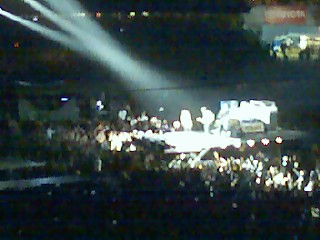112206_22441.jpg

112206_22441.jpg
Originally uploaded by Joshua Hale Fialkov.
Purveyor of sheer awesomeness.
Joshua Hale Fialkov is the Harvey, Eisner, and Emmy Award nominated writer of graphic novels, animation, video games, film, and television, including:
THE LIFE AFTER, THE BUNKER, PUNKS, ELK'S RUN, TUMOR, ECHOES, KING, PACIFIC RIM, THE ULTIMATES, I, VAMPIRE, and JEFF STEINBERG CHAMPION OF EARTH. He's also written television including MAX’s YOUNG JUSTICE, NBC's CHICAGO MED and NETFLIX’s AVATAR: THE LAST AIRBENDER.

112206_22441.jpg
Originally uploaded by Joshua Hale Fialkov.

112206_22321.jpg
Originally uploaded by Joshua Hale Fialkov.

Stones are old.
Originally uploaded by Joshua Hale Fialkov.

Christina's Flyin' Home
Originally uploaded by Joshua Hale Fialkov.
She's right there.
So, here's a no-brainer, right? One of the quintessential Horror films of all time, that just happens to be one of the quintessential Hitchcock films. The movie is sheer tense brilliance where the horror comes from where it should come from... the plot and the characters. Up until the final reveals of Norman and the Fruit Cellar, the paranioa and confusion is so overwhelming that you're kept on the edge of your seat, hoping... praying that whatever happens... happens and it doesn't hurt you.
The movie works as almost a selection of shorts with an interwoven plot. The first third dealing with Marion, the second works as an interlude following the private eye, and then the pot boiler ending section. Sure, plot wise they're all the same, but the tone is quite divurgent... I'd say the first section has more to do with the later films, like Marnie, the second a nod to the early Detective Noirs, and the final section is pure North by Northwest.... plus a rotting corpse.
Interestingly, like Marnie and even a bit in Rope, the only real downside to the film is the psycho-babble at the end. Hitchcock's obsession with putting a fine point on the psychological underpinnings of his heroes and villains is always too much on the nose for me, but, compared to most of the films of the era, it's still expertly executed.
The root of the modern horror movie is Psycho, and yet, we've gotten it so wrong since. Psycho will always remain a terrifying classic with no peer.

Saturday Night in Hollywood
Originally uploaded by Joshua Hale Fialkov.

Tony Fleecs Draws Josh
Originally uploaded by Joshua Hale Fialkov.
But I'm stuck in LA workin'.
Young Sean Connery, when not playing James Bond, always sort of creeps me out. But, in Marnie it works in his favor. The image of super suave secret agent helps to sort of fix what comes off as foolishness and leads to... well, what it leads to. You buy that he can really think he can solve her problems. And, transversely, Tippi Hedren spends the entire movie trying to not be attracted to Sean Connery. So, like Hitch is best known for, he lets both actor's outside personalities alter our perception of their characters. Which is both smart and a little bit weird.
Really, the highlight of the movie, for me anyhow, is the score by Bernard Herrmann. The last score he did for Hitchcock, and while not the most iconic (Vertigo or Psycho would take that), it's delicate and sophisticated... tonally very diverse. Best of all, like most collaborations between Hitchcock and Herrmann is the decision of when to use music and when to abstain. Scenes of high drama that should have tense music, instead are stone silent, nothing but the rustling of feet to guide you. And it works. Works in bucketfuls. The wonderful split screen as Marnie loots the bank vault and the cleaning lady cleans the office is literally cinema perfection.
From there, the movie becomes this interesting little psychotherapy drama, as Sean Connery shows off his (unexplained) psychiatric knowledge, and starts to analyze Marnie and what made her the mess of a person she is (She's scared of red! She's scared of lightning! She doesn't like being touched by Sean Connery! Sheer Madness!) It falters a bit once it comes to the end, which is almost exactly what you expect it to be, rather than, say, the end of Chinatown. But still, it's one of Hitch's greats, and really an excellent example of a character study that is somewhat rare in his overall filmography.